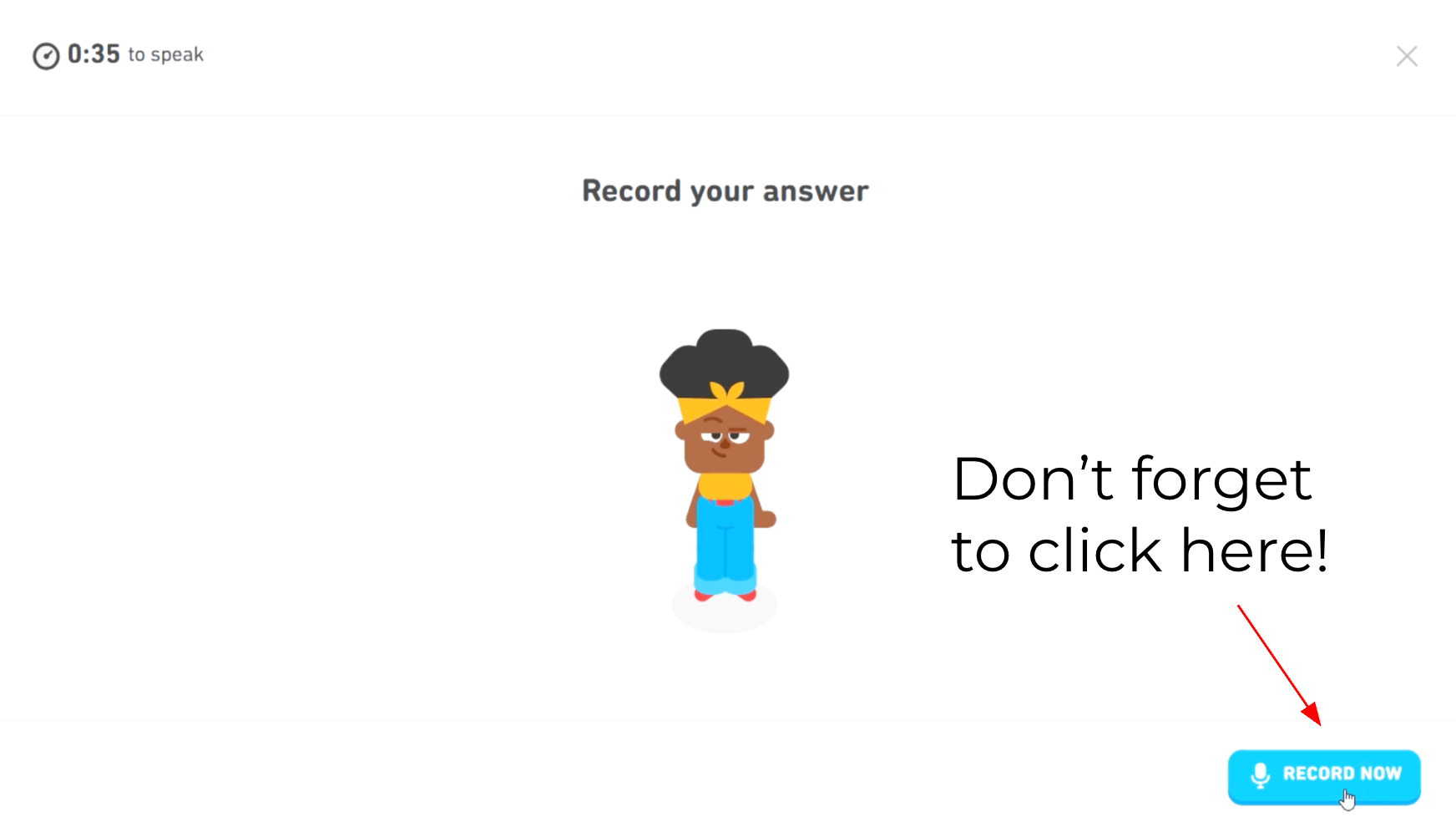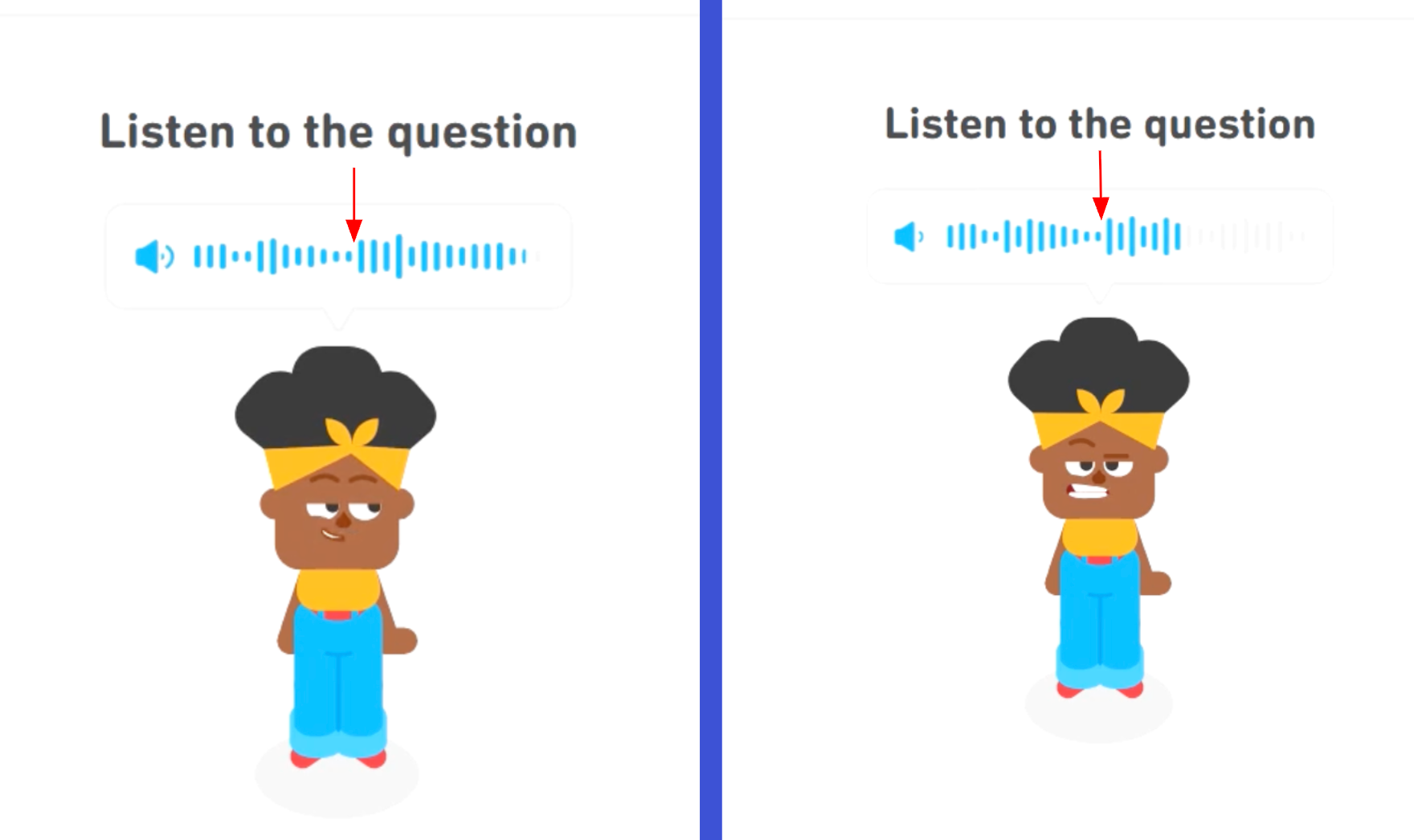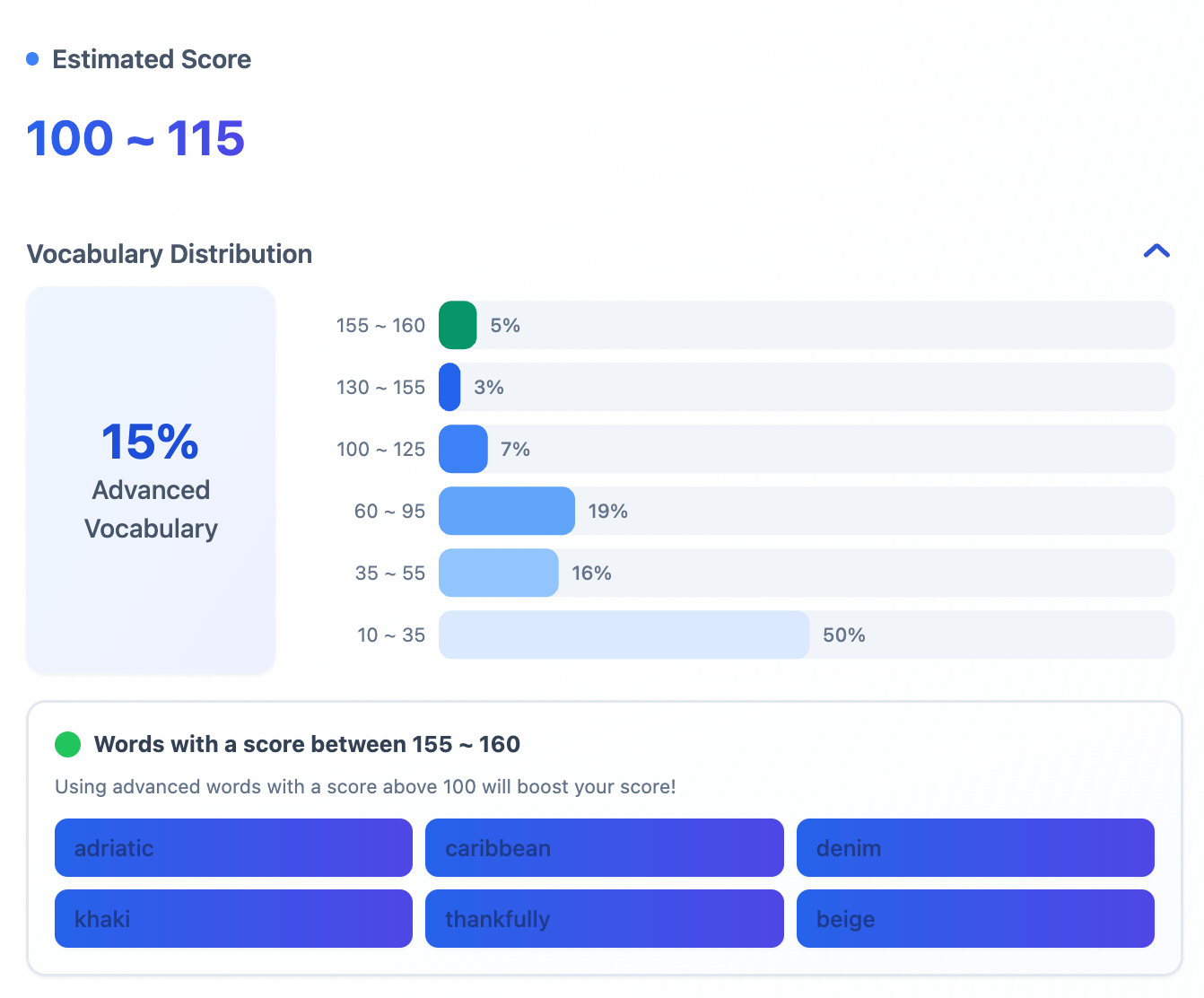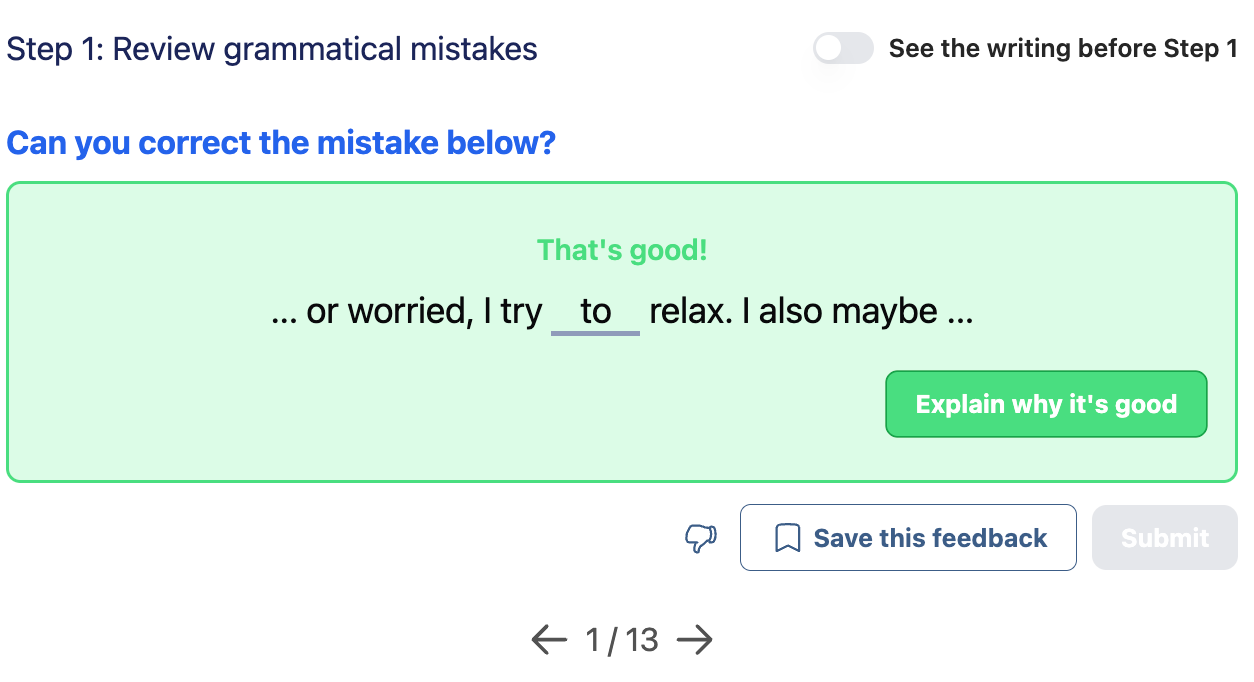Interactive Speaking - Guide to Duolingo English Test Question (2025)
The Interactive Speaking question was added to the DET on July 1st, 2025. This guide will tell you everything you need to know to get a high score for this question type!
We also have a full masterclass on Interactive Speaking, which is available on our YouTube channel!
Table of Contents
- What is the Interactive Speaking Section?
- Best Tips for Interactive Speaking
- The Best Way to Structure Your Answers in Interactive Speaking
- How to Practice Interactive Speaking
What is the Interactive Speaking Section?
The Interactive Speaking section is like an interview. Here’s how it works:
- There is only one Interactive Speaking question set on the test.
- You will hear a series of 6-8 short questions.
- You have 35 seconds to answer each one.
- You can listen to each question only one time. This means you have no time to get ready to answer after the question stops. The 35-second timer starts right away.
- The topic will change in the middle of the questions. You will get a few questions on one topic, then the rest will be on a new topic.
- The questions use the same topics as other writing and speaking questions on the test, so you don't need to learn special words.
- Your answers are scored like other speaking questions on the test.
👉 For more information on how Duolingo grades speaking questions, check out this video:
Best Tips for Interactive Speaking
To do great in this part of the test, remember these key tips:
1. Don't forget to click "Record Now"
After you hear the question, you will see a screen where the timer starts. But, your answer will not be recorded unless you click the "Record now" button at the bottom right. Make sure this is the first thing you do!

2. Speak for 30 seconds
You have 35 seconds, but speaking for 30 seconds is best. This lets you speak for a good amount of time, giving you time to explain your ideas and use advanced words to get more points. It also gives you 5 extra seconds to finish your last sentence if you speak a bit long, so your answer doesn't get cut off and you don't lose points.
3. Don't think too much about your answer
With only 35 seconds, you don't have time to plan a long answer. It's better to choose the first idea that comes to your mind and start speaking right away. Your answer will be short, so you don't need to share many ideas beyond your main point.
4. Listen carefully to the second part of the question
The person speaking will often start with phrases like Thanks for that information or Interesting, let me ask you another question. The important part of the question—what you need to talk about—comes in the second half. Listen for question words like describe, discuss, tell me about, do you think, in your opinion, why, how, who, what, and where.
5. Look for the "big spike" in the audio waveform
As you listen to the question, you will see a picture of the sound (called a waveform). The question you need to answer usually starts with a "big spike" in the sound around the middle of this picture. Looking at this can help you quickly find the important part of the question.

6. Use Connecting Words
Connecting words are very important for making your answer clear and easy for the listener to follow your ideas. Being clear is most important in English, and these words help your ideas make sense together. Examples include The reason I like to... and In short...
The Best Way to Structure Your Answers in Interactive Speaking
For every Interactive Speaking answer, try to do these three things to form a clear, coherent, and high-scoring answer:
1. Answer the question as directly as possible.
Don't use extra starting phrases like This is a very interesting topic because they waste time and don't help your score. Start right away with your answer. For example, if asked about your favorite food, begin with something like My favorite food to have at an event is chili.
2. Explain why you think that.
After you say your answer, tell why you have that opinion. For example, The reason I like to bring chili is that it is versatile.
3. Give an example or specific details.
Support your answer and explanation with clear details or examples to talk more about your idea. For example, this could be describing ingredients for chili. This way of answering can be used for any question you get, helping you give a good answer every time.
How to Practice Interactive Speaking
Understanding these tips is a strong first step. But in order to use them effectively on the test, you need to practice with them. That's where Arno comes in 😁
In Arno, you get unlimited practice questions for every question for free, including Interactive Speaking. If you upgrade to one of our paid plans, you can also get an instant estimated score and detailed feedback on your grammar and vocabulary. Arno will even rewrite your answer to make it high-scoring and give you examples of other high-scoring responses.



To get started in Arno, just click below and create your free account!
